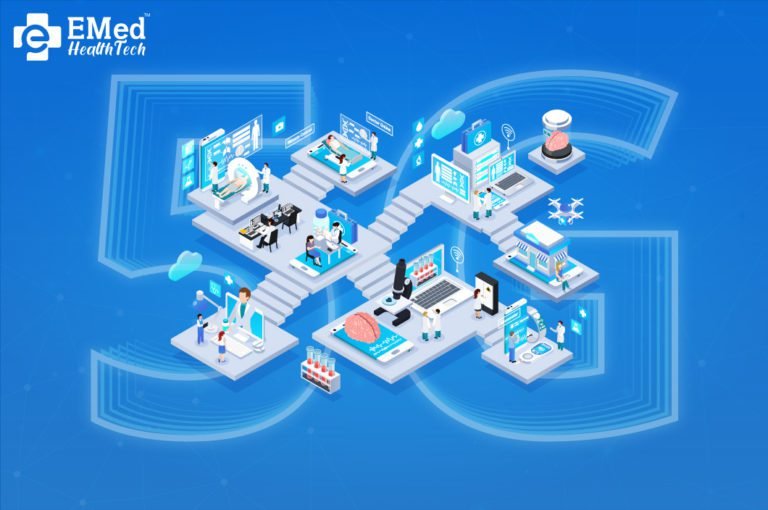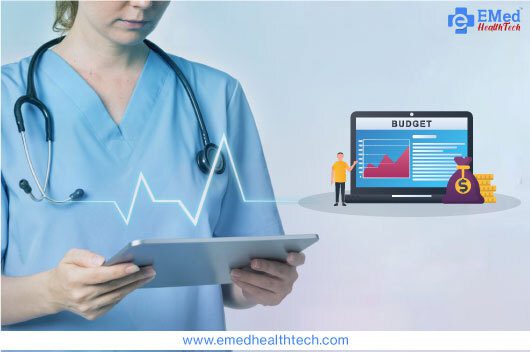site_admin
Advances in medicine have always been closely tied to advancing technology. New inventions allow better diagnosis and care. The adoption of technology in medicine has seen a huge surge, since the onset of the COVID pandemic, especially in telehealth services. Other areas like wearable tech are also popular means of tracking vitals. All these and other factors like faster connectivity and research breakthroughs forecast a year filled with new health trends.
What is Digital Healthcare?
Digital health refers to a broad range of categories such as mobile health, wearable devices, health information technology, telemedicine and telehealth, and personalized medicine. These digital healthcare services and tools help diagnose and treat diseases and enhance the delivery of healthcare for the individual. Doctors can use data from these to make better diagnoses. It also uses technology like artificial intelligence, machine learning, virtual consultations, and more to make healthcare accessible to all. Digital healthcare has been the driving force of innovation and revolution in the healthcare industry.
Ten Digital Healthcare Trends to Look Out for in 2023
Earlier we checked 6 Emerging Digital Transformation trends in 2022 that are set to revolutionize the healthcare industry. Please check the top 10 digital healthcare trends to check in 2023.

1. AI-enabled Digital Healthcare Transformation
One of the prominent healthcare trends that are expected in 2023 is the different ways in which AI will impact healthcare. AI can help data-driven clinical decision-making, streamline healthcare system workflows, etc. AI has the potential to improve patient care, enhance the work-life balance of physicians, and optimize resources for the functioning of healthcare institutions. One example is medical chatbots powered by AI conducting human-like conversations via text, voice, or option-based inputs.
2. Wearable tech and Continuous Health Monitoring
Wearable technology revolutionizes the way people perceive their health. It has brought a level of awareness to users. They take health into their own hands and use the information from it to constantly work on themselves. These wearables also generate data that doctors use. It also enables them to take a proactive rather than a reactive approach. It helps diagnose and monitor lifestyle diseases and other health conditions early on. They are also used for clinical trials.
3. Better Privacy and Security
Technology has aided in protecting the privacy and security of patients. The use of telehealth means a broader scope of private data being leaked unintentionally or intentionally for fraudulent purposes. The large amount of data generated from wearables also has the potential to be used illegally. However, better data protection is achieved with better security systems and technology like blockchain. Healthcare centers invest in better data privacy and security plans to ensure patient data privacy and to gain their trust.
4. Universal Adoption of Telehealth
Communication systems have undergone rapid globalization and there is better connectivity than ever before. This worldwide connectivity opens up the possibility of telehealth being widely adopted rather than being an isolated phenomenon. Telehealth as a way of transmitting medical information opens healthcare access to all. Telehealth services via videoconferencing, the internet, streaming services, and other communication systems are slowly being adopted worldwide. With the COVID pandemic showing a surge in such adoption, there is a rising trend of it becoming more widely used.
5. Use of Big Data and Analytics
One of the biggest trends of the previous years was using large amounts of data to gain insights. This continues in the coming years and the different industries, including healthcare. Mass amounts of data collected from devices like mobile, wearables, and other medical devices can give valuable data. These data are used to make new correlations between the economy, ecology, and demographics. Data is analyzed to know better what we never had access to before. Analytics can be used to prevent diseases, and the spread of diseases in a community and come to valuable conclusions from studies.
6. Smart Implants
One of the advancements in technology is the possibility of smart implants. They are medical devices implanted into the human body and transmit real-time information. This information can help ascertain critical information about the person’s condition. The data can then be used to prevent emergencies and take a proactive approach to treatment. Implant-related technology has also seen widespread adoption. There is higher efficiency in regenerative medicine, a cure for disabilities that previously could not be cured, and effective patient rehabilitation.
7. Augmented Reality and Virtual Reality
Augmented reality and virtual reality have been around for some time in the mainstream but their applications were mostly in the entertainment industry. The use of these technologies in the healthcare sector is still in the nascent stage but holds tremendous potential. AR and VR can be used for medical diagnosis, education, and training. Using simulation realities to teach different medical procedures, conducting them remotely via augmented reality, etc, are being tested worldwide.
8. Nanomedicine
Although nanotechnology has been around for a long time, there has not been significant widespread application in medical and other fields. However, the little steps over the years have accumulated to something, and 2023 is bound to see some nanotechnology in action. Inventions like xenobots, tiny organic robots with the ability to self-replicate, have made waves in the medical community. It can be used in cancer detection to find genetic anomalies or autoimmune diseases on a cellular level.
9. Investing in mental health
The pandemic and its aftermath put into stark reality the need for mental health. The pandemic put people in unusually challenging situations like isolation, loss of loved ones, and losing jobs as well. All of these brought the spotlight to the importance of mental health, and there has been no looking back ever since. With the use of telehealth services, the avenue of online mental health services has increased. 2023 shows the scope of expanding mental health services and increased investment in the same.
10. Social Determinants of Health (SDOH) and Healthcare Inequality
Healthcare is no longer regarded as accessible merely considering the distance. There are a lot of other factors that determine how accessible healthcare is to a person. These factors are called Social Determinants of Health. The environmental conditions to which a person is born, lives, worship, the education and exposure they have, their gender, employment, job security, income and social protection, and so many other factors come into play. Addressing these and focusing on them to negate them and make healthcare more democratic is a challenge for the coming years.
Importance of adopting digital healthcare
Hospitals, clinics, and private practices greatly benefit from adopting digital healthcare. On the whole, digital health products have the potential to lower the expenses related to healthcare, prevent diseases with a proactive approach, and monitor and help patients with chronic health conditions. It also has a high level of personalization according to patients’ needs. Here is how digital health can help developing countries in advancing their healthcare system.
Healthcare providers benefit from digital health as it gives them the tools to have a better view of the patient;’s health, which gives them an extensive view of the patient, which allows them to give better care to the patient. Overall, digital healthcare increases positive medical outcomes and the efficiency of the process.
Why Should you Work with a Digital Healthcare Provider?
Digital healthcare provider equips you with the necessary technology to establish a solid digital healthcare system. They would have better knowledge of the technology and better access to the resources you need to set it up. A good digital healthcare provider will also give you 24/7 support. They can guide you through the processes that make healthcare practices more efficient.
Why Should You Hire EMed HealthTech’s Developers?
EMed HealthTech is an expert in healthcare IT solutions and services and a specialist in healthcare software development. At EMed HealthTech we have state-of-the-art technology and customized IT solutions and services that help the healthcare industry to adopt cutting-edge technology that gives them the upper hand in the market. We enable companies to adopt healthcare IT products and services that improve the quality of their healthcare services and increase their revenue.
Interested in discussing more? Get in touch with us!
Related posts

Digital Healthcare
10 Benefits of 5G Launch on Healthcare in India
10 Benefits of 5G Launch on Healthcare in India
Read more
Digital Healthcare
Telemedicine is a Must for Digital Health Ecosystem: Union Budget 2022-23 Spotlight
Telemedicine is a Must for Digital Health: Union Budget 2022-23 Spotlight
Read more
Digital Healthcare
How Integrated Platform is Shaping the Future for Healthcare Providers?
How Integrated Platform is Shaping the Future for Healthcare Providers?
Read more







